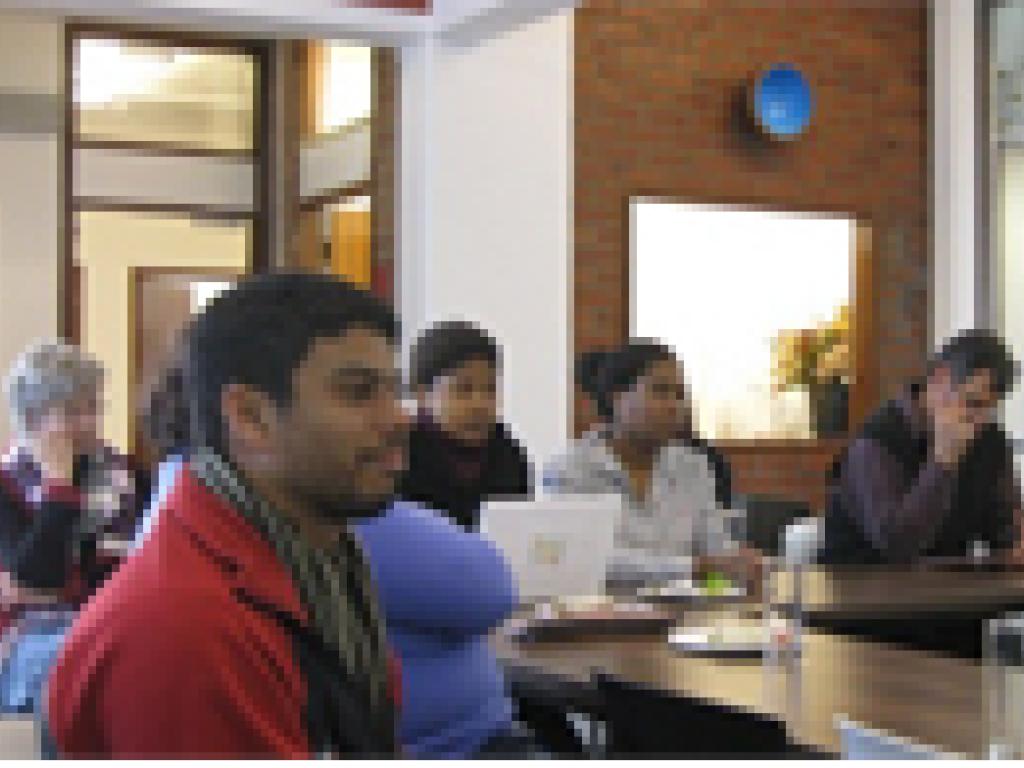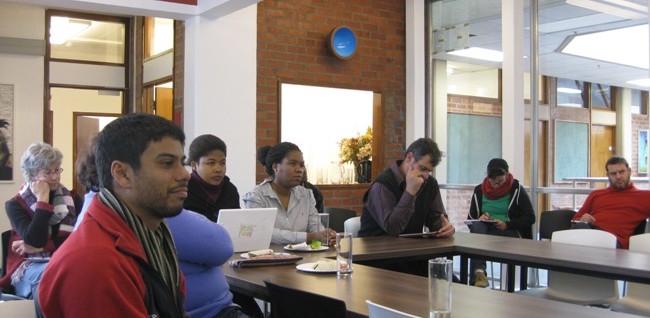“Media turns the ordinary to spectacle” writes Thato Kekana


UCT 2nd year Media student, Thato Kekana, attended Steven Robins’ (Stellenbosch University) seminar “slow activism in fast times: Revisiting the politics of the spectacle and the everyday after apartheid” at Huma. Listen to the audio-recording of the seminar here.
‘Media turns ordinary to spectacle’ by Thato Kekana
The Institute for the Humanities in Africa (HUMA) held a talk with Prof. Steven Robins of Sociology and Anthropology from the University of Stellenbosch on Thursday the 23rd titled ‘Slow Activism in Fast Times.’
Robins argues that the media has a tendency of taking an ordinary story, politicizing it and turning it into a spectacle. He says, “Journalists are drawn to the barricade and pay attention to the mundane issues.”
He makes reference to how the open toilet issue was politicized by the African National Congress Youth League’s (ANCYL) street demonstration in 2011. The media only ran with the story after the ANCYL took control of the issue. This turned something as ordinary as sanitation into a framed political issue and newsworthy spectacle by involving the ANCYL.
Once the ordinary is politicized, it becomes a spectacle and people are drawn to spectacle. “However, the spectacle ordinarizes the dehumanization of an issue such as the open toilet,” says Robins.
Zethu Matebeni, Research Officer at HUMA, says, “Media tends not show the complexity of how issues are politicized…in this case how people feel dehumanized every day.” She goes on to say that this is an issue that is about power dynamics.
It has become a radicalized issue. Black people in the townships do not want any other form of sanitation but a housed ceramic and plumbed pot. It is a pot that the white people have in the suburbs and therefore black people should have the same. This reflects on the inequality of apartheid and some protesters have threatened to display excrement on the roads of the upper class of Camps Bay.
Media covers such sensationalised versions of stories because it maintains its historic tradition, from the apartheid era, of placing violence at the foreground. It publishes images that shocks people and shames the state into action. Robins say that the media covers the “standardized script of burning tires and handing over the memorandum at the end.”
It is a standard coverage at an accelerated speed at which it gets published on mediums but with a short life span, which he refers to as ‘fast times.’ The stories might be indefinitely accessible on the internet but their circulation is short-lived. This causes an express marathon of sensationalized story in order to make profit.
The Social Justice Coalition (SJC), which Robins identifies as ‘slow activism’ – the long term process of organizational labour – agree that sensationalized stories sells newspapers. They go on to argue that the media gives the middle-class an impression that protest and disruption is the only way that poor people deal with social issues.
The SJC has dealt with the open toilet issue at a debate and educating level. They teach people about the importance of sanitation and how to maintain a healthier environment to live in. These efforts are commendable but are not enough for people because they do not entirely solve the issue of the indecency of using an open toilet as per the protests.
